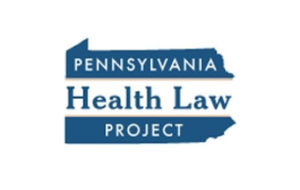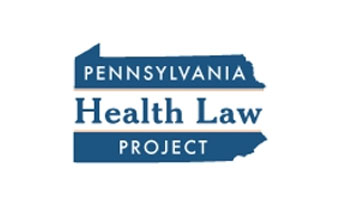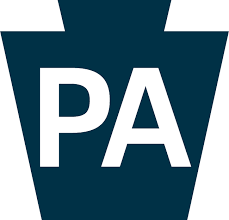Pennsylvania Health Policy Update for the Week of June 14-18
The following is an update of selected state health policy developments in Pennsylvania for the week of June 14-18, 2021. (Some of the language used below is taken directly from state documents.)
Pennsylvania’s COVID-19 Disaster Declaration
With the certification of November’s election results, Governor Wolf’s COVID-19 emergency disaster declaration has officially ended but most of the regulatory waivers issued during the emergency will remain in effect until the end of September. Learn more here.
Update on State FY 2021-2022 Budget
The General Assembly continues to work toward a final budget agreement, with both the House and Senate beginning to position bills that could ultimately serve as vehicles for a final budget agreement by June 30. The Senate sent a General Fund appropriations bill (Senate Bill 255) to the House earlier this week and scheduled a Finance Committee meeting on Monday, June 21 to consider a fiscal code bill (House Bill 1348). We will continue to keep you apprised of any relevant budget updates.
 Legislative Update
Legislative Update
The following are health care bills that received third and final consideration in the state House and/or Senate during the week of June 14. We are tracking other health care bills as they move through the legislative process as well.
- House Bill 1082 requires the Department of Health to establish and maintain an Early Detection and Diagnosis of Alzheimer’s Disease or a Related Disorder toolkit. The toolkit, among other things, shall include best practice and cognitive assessment tools, primary care workforce education resources, and materials on the importance and value of early detection and timely diagnosis. The House passed the bill 201-1 and sent it to the Senate for consideration.
- House Bill 1428 permits a resident, or their guardian, to authorize the installation and use of video surveillance devices in long-term-care nursing facilities provided certain conditions are met. The House passed the bill 160-42 and sent it to the Senate for consideration.
- House Bill 1429 adds a new section to the state Crimes Code providing for the offense of financial exploitation of an older adult or care-dependent person. It also clarifies that district attorneys have the right to investigate and institute criminal proceedings for any violation of this new section. The House unanimously passed the bill and sent it to the Senate for consideration.
- House Bill 1431 adds a new section to the Crimes Code that defines as abuse and establishes as a misdemeanor the use of social media by employees who post pictures of care-dependent individuals without permission. The House passed the bill 198-4 and sent the bill to the Senate for consideration.
- Senate Bill 445 permits a person renewing a driver’s license, identification card, or vehicle registration electronically through the Department of Transportation’s web site to contribute $5 to the Pennsylvania Breast Cancer Coalition for breast cancer research. The House passed the bill unanimously and sent the bill to the governor for his consideration.
- Senate Bill 416 establishes the certified registered nurse anesthetist (CRNA) designation in the commonwealth. The legislation grants an individual licensed to practice professional nursing and who meets the requirements of this act the right to use the CRNA designation exclusively. The Senate passed the bill unanimously and sent it to the House for consideration.
- House Bill 649 requires the Department of Health, in consultation with the Department of Human Services, to establish protocols to permit an essential caregiver to provide in-person physical and emotional support to a congregate care facility resident during a declaration of disaster emergency. The Senate passed the bill 32-18 and sent it to the governor.
COVID-19: By the Numbers
- The daily number of new COVID-19 cases continues to decline. With 277 new COVID-19 cases reported, yesterday marked the lowest new daily case count since March 25, 2020, when 276 new cases were announced.
- The number of COVID-19 deaths continues to decline significantly.
- For the week from June 4 through June 10 the state’s overall COVID-19 test positivity rate was 1.9 percent, down from 2.9 percent last week and 3.8 percent the week before.
- Sixty-two counties had a positivity rate lower than five percent, up from 55 last week, and no counties had a positivity rate greater than 20 percent for the seventh consecutive week.
- Twenty-two counties are currently experiencing low levels of community transmission of COVID-19, up from 13 last week; 53 counties are experiencing moderate levels of community transmission; and only one county (Potter) is currently experiencing a substantial level of community transmission, the same number as last week.
- In just 17 days since June 1 (as of Thursday, June 17), the number of Pennsylvanians hospitalized with COVID-19 has fallen 54 percent; the number on a ventilator has fallen 44 percent; and the number in hospital intensive care units has fallen 54 percent.
- 5.2 million Pennsylvanians have been fully vaccinated against COVID-19, according to the state’s COVID-19 dashboard. Growth in this number has slowed significantly over the past three weeks. Another 760,000 have been vaccinated in Philadelphia. According to the state, 58.8 percent of Pennsylvanians 18 years of age and older are now fully vaccinated and 61.1 percent of the entire population has now received at least the first dose of a vaccine.
Department of Human Services
The American Rescue Plan offers a temporary 10 percent increase in federal Medicaid matching fund for certain state Medicaid expenditures for home and community-based services (HCBS). DHS has submitted a preliminary spending plan to the federal Centers for Medicare & Medicaid Services (CMS) as part of the process of seeking approval for this additional funding and has invited stakeholder comment on its proposal. Comments are due July 6. Go here to see DHS’s announcement of this endeavor; go here to see a Wolf administration news release on the subject; and go here to see DHS’s preliminary spending plan.
 Department of Drug and Alcohol Programs
Department of Drug and Alcohol Programs
In response to the COVID-19 pandemic, the Department of Drug and Alcohol Programs suspended three of its regulations governing narcotic treatment programs: one limiting the supply of medicine those programs can dispense at one time to their patients; another requiring those programs to meet patients in person before prescribing buprenorphine; and the third requiring them to have a physician on the premises. While the governor’s declaration of a disaster emergency has been terminated, the department has advised all stakeholders that these three regulations will remain suspended until September 30. Go here for more information.
The Department of Drug and Alcohol Programs has issued an alert clarifying the requirements that licensed providers must meet to use certain medications, including methadone, buprenorphine, and naltrexone.
Around the State
- Of the more than 600,000 residents of Allegheny County who are fully vaccinated, according to county health officials, only 420 have contracted COVID-19 – so-called breakthrough cases; only 11 of the 420 required hospitalization. The Pittsburgh Tribune-Review provides the details.
- Demand for COVID-19 vaccinations is falling in the Lehigh Valley and throughout Pennsylvania and the Allentown Morning Call offers the numbers to prove it.
- While COVID-19-related hospitalizations have declined state-wide they are rising in Erie and Crawford County. GoErie looks into why.
- Cumberland County has made masks optional for staff and visitors at any county facility except the Claremont Nursing and Rehabilitation Center and Cumberland County Prison, according to the Carlisle Sentinel.
- The city of Pittsburgh has announced plans for its workforce to return to city offices, the Pittsburgh Business Times reports.
- “The company responsible for administering Pennsylvania’s contact tracing program has called on current and former employees to help it locate and secure documents online that might still contain the personal information of those who were contacted, “ according to Spotlight PA, which added that “…a lawyer for Insight Global asked them to contact the company’s information security team if they had any paper or electronic records, internet links and files, or Google Drive documents related to the program.” The company was fired because of data leaks.
- Black maternal morbidity rates in Philadelphia are among the highest in the country, the Pennsylvania Capital-Star reports.
- “Medical marijuana sales in Pennsylvania topped more than $900 million over one year during the COVID-19 pandemic, and could soon see $3 billion in total sales with just a few operating years under its belt,” the Delaware County Daily Times writes, adding that “According to figures provided by the Pennsylvania Department of Health, sales from growers/producers to dispensaries have reached almost $1.2 billion and sales from dispensaries to patients have crested $1.7 billion.”
 Pennsylvania Bulletin
Pennsylvania Bulletin
The latest issue of the Pennsylvania Bulletin is now available. It includes new items from the Department of Human Services, Department of Health, the General Assembly, and others. Find it here.
Stakeholder Events
Medical Assistance Advisory Committee’s Consumer Subcommittee Meeting
June 23 at 1:00 p.m.
Medical Assistance Advisory Committee Meeting
June 24 at 10:00 a.m.
DHS Office of Long-Term Living – Financial Management Services Meeting
June 28 at 11:00 a.m.
The purpose of this meeting is to discuss upcoming changes in the administration of financial management services under the Community HealthChoices, OBRA Waiver, and Act 150 programs. Representatives from the Office of Long-Term Living and Community HealthChoices managed care organizations will discuss the upcoming changes. Interested parties can join the meeting in the following ways:
From the meeting link:
https://pa-hhs.webex.com/pa-hhs/j.php?MTID=m15e2e495a802f00df6fa38c9e645237d
By meeting number:
Meeting number (access code): 132 280 2499
From a mobile device (attendees only):
1-408-418-9388,,1322802499## United States Toll
1-202-860-2110,,1322802499## United States Toll (Washington D.C.)
By phone:
+1-408-418-9388 United States Toll
+1-202-860-2110 United States Toll (Washington D.C.)
Meeting password: Stakeholder
From a video system or application
Dial 1322802499@pa-hhs.webex.com
You can also dial 173.243.2.68 and enter your meeting number
Managed Long-Term Services and Supports Subcommittee Meeting
July 7 at 10:00 a.m.
This meeting will be held via webinar. Public comments will be taken after each presentation and questions can be entered in the chat box. Interested parties can participate in the following ways:
Webinar registration – go here
Dial in: 1-914-614-3221, access code 716-025-613
Remote captioning and streaming link – go here
 Included in this month’s edition are articles about:
Included in this month’s edition are articles about: Included in this month’s edition are articles about:
Included in this month’s edition are articles about: According to the GAO report,
According to the GAO report,

 In the guidance, the Centers for Medicare & Medicaid Services explains that because of several court rulings, states can decide for themselves whether to offset third-party payer payments from costs in their Medicaid DSH calculations for periods prior to June 2, 2017 but that beginning with that date, CMS will enforce its own interpretation of the policy.
In the guidance, the Centers for Medicare & Medicaid Services explains that because of several court rulings, states can decide for themselves whether to offset third-party payer payments from costs in their Medicaid DSH calculations for periods prior to June 2, 2017 but that beginning with that date, CMS will enforce its own interpretation of the policy. Secretary Levine today issued an order requiring hospitals to make daily report of specified data regarding hospital facilities, beds, supplies, equipment, and staffing. Among the measures hospitals will be required to report daily are available beds, psychiatric beds, number of other beds in facilities, current emergency department capacity, number of COVID-19 patients, expected number of days remaining N-95 masks will last, expected number of days remaining until other personal protective equipment supplies will exhausted, supply of remaining NP specimen collection supplies in days, number of ventilators in facility and in use, and number of employees available for work. See the secretary’s order
Secretary Levine today issued an order requiring hospitals to make daily report of specified data regarding hospital facilities, beds, supplies, equipment, and staffing. Among the measures hospitals will be required to report daily are available beds, psychiatric beds, number of other beds in facilities, current emergency department capacity, number of COVID-19 patients, expected number of days remaining N-95 masks will last, expected number of days remaining until other personal protective equipment supplies will exhausted, supply of remaining NP specimen collection supplies in days, number of ventilators in facility and in use, and number of employees available for work. See the secretary’s order  The Office of Medical Assistance Programs has issued billing guidance to CHIP managed care organizations on the subject of alternative screening sites related to COVID-19. Find that two-page document
The Office of Medical Assistance Programs has issued billing guidance to CHIP managed care organizations on the subject of alternative screening sites related to COVID-19. Find that two-page document  The Department of Drug and Alcohol Programs (DDAP) has issued a document clarifying the state’s response to federal guidance on the disclosure of patients’ substance abuse disorder records during the telehealth process. See that policy clarification
The Department of Drug and Alcohol Programs (DDAP) has issued a document clarifying the state’s response to federal guidance on the disclosure of patients’ substance abuse disorder records during the telehealth process. See that policy clarification  Since yesterday, the Department of Human Services has issued the following four new guidance documents:
Since yesterday, the Department of Human Services has issued the following four new guidance documents: Federal
Federal